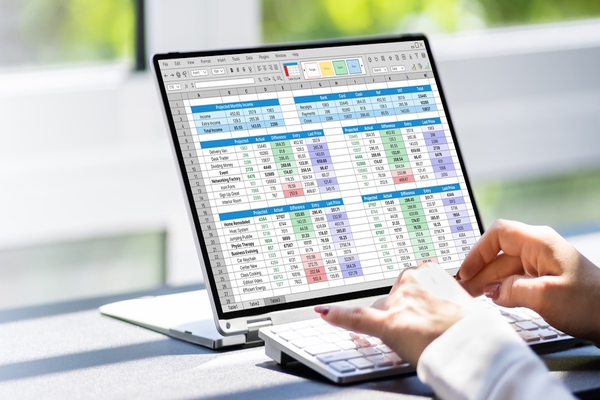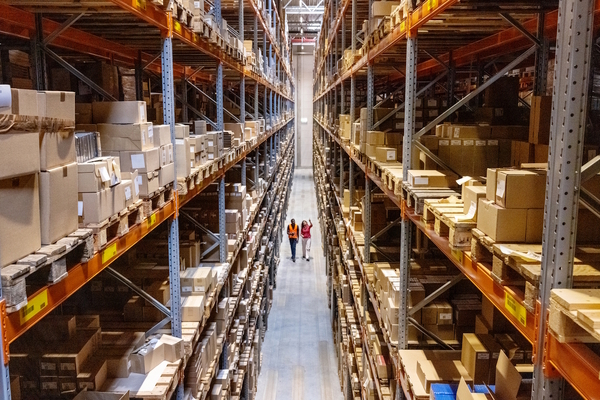Behind the scenes, AI is making more business decisions than ever
Sponsored by Aera TechnologyAt some of the world’s largest companies, decision intelligence is filling gaps in knowledge and headcount – and saving millions of dollars in the process

A pharmaceutical company that manufactures medical devices deployed a decision intelligence platform to deliver near real-time order updates and proactive communication to its customers.
For those familiar with the customer experience leading online retailers provide, where delivery dates are readily available and accurate, this may not seem like a big deal. Yet decision intelligence is providing the same information for complex, build-to-order products by analysing data from numerous sources within the manufacturer’s supply chain.
Similarly, an integrated steel manufacturer uses decision intelligence to ensure customer orders are fulfilled on time and in full. By automating routine decisions based on data analysis, the system automatically responds in real time to make sure the company keeps its customer promises. Again, these decisions are made with data sourced from across the company – not only inventory, but all the way upstream to logistics, manufacturing and inbound supply.
These are real-world examples from companies that have adopted decision intelligence, the digitisation and automation of decision making at an enterprise level using artificial intelligence (AI) and machine learning (ML) technologies.
Decision intelligence is transforming business processes companywide by enabling decision making at the speed and scale required to remain competitive today.
AI and ML fill the gaps in decision making
From line-of-business managers to the C-suite, the demand for business decisions exceeds the supply of people, actionable data and time required to make them. Decision intelligence helps fill the gaps, revealing decision-making opportunities that increase agility and save money.
There’s a gap in predictability. Just-in-time methods and established processes have been unable to adapt to a flurry of crises and challenges: natural disasters, Covid-19, labour shortages, reduced shipping capacity, high demand for materials, the war in Ukraine and rising inflation.
At the same time, businesses face a gap in knowledge. Experienced workers are retiring or changing jobs – leaving with the valuable insights they gained during their careers. Many are replaced by younger hires who don’t have that institutional knowledge, and who may not stay in positions as long as their predecessors. The Great Resignation follows years of companies asking more of employees in almost every job role, complicated by the pandemic and shifts in how and where people work.
Employees have more decisions than ever to make – and much less time to make them. The volume, velocity and complexity of decisions in every part of the enterprise has increased to levels that obscure opportunities for efficiency.
Finally, there’s the customer experience gap. Businesses are frantically trying to fulfil demand for goods and services from customers trained to expect rapid service. Workers are frustrated by not having the data or the time they need to work more efficiently. And consumers are frustrated by a lack of action from companies on core issues such as environmental sustainability, diversity, equity and inclusion.
These gaps push us beyond any metaphor we’ve used in the past – “black swan,” “perfect storm,” take your pick – to an inflection point where businesses must evolve how they make decisions in order to survive.
The ‘killer use case’ for enterprise AI and ML
Decision intelligence fills these gaps by doing what data lakes, predictive analytics, robotic process automation and digital control towers can’t do on their own. True, these solutions can leverage AI and ML and create faster, smarter, more intuitive tools that help analysts, planners, buyers and their counterparts find answers. But we’re still expecting people to do the work when there are too many decisions to take and not enough time.
Digital-native online retailers figured out early in their journeys that to deliver e-commerce at scale, pricing and inventory management decisions had to be automated. The massive shift from brick-and-mortar retail to online ordering and rapid fulfilment was made possible because of systems that were built from the ground up to provide the data and insights needed to deliver that experience.
Decision intelligence is a game-changer because it opens the door to this level of agility for businesses without a rip-and-replace approach, or a time-and-resource-intensive transformation process. Unlike those digital natives, many businesses today rely on a tapestry of siloed legacy systems for planning, procurement, distribution and other critical functions – some on-premises, others in the cloud, and each with its own challenges. A decision intelligence platform complements existing planning and transaction solutions by ingesting data from them and creating a closed loop.
That’s why decision intelligence is the “killer app” for the enterprise, leveraging AI and ML technologies to go beyond surface data and analytics or simple process automation.
At the companies I mentioned above, decision intelligence has transformed how workers use technology: instead of people using machines to make decisions, today AI is making decisions with guidance from experienced people.
Decision-making at the speed of business
This is a crucial change from the way business decisions have been made for decades. When your experienced, knowledgeable employees are no longer struggling to keep up with an ever-increasing list of decisions with ever-shorter windows of opportunity, you transform the nature of those roles.
At companies that have leveraged decision intelligence, workers are spending less time on repetitive and transactional activities. They are now able to focus on value-added areas such as strategy and collaboration – proactive steps instead of reactive ones. And you can expect this transformation to shape future career choices as employees begin to choose companies that give them the tools to be more creative and effective.
As organisations shift to the new paradigm of decision intelligence, they’re finding new opportunities to be agile and to innovate. Leaders can move from asking questions such as “what routine decisions can we automate?” to more transformational ones, such as “where could real-time decisions help transform our customer experience?”, or “where do we have to make 80/20 tradeoffs with our time, resources, and focus?” By helping leaders think more strategically, decision intelligence is allowing companies to benefit from opportunities that would have gone unaddressed or unseen without the aid of technology.
Learn more about how decision intelligence is driving business outcomes by reading the latest white papers from Aera Technology.

By Fred Fontes, Head of Growth, Aera Technology
Fred has spent most of his career advising CPG and retail leaders on how to transform their businesses through the power of data and advanced analytics. Prior to joining Aera, Fred was an associate partner at a leading global management consulting firm, where he led clients through advanced analytics transformations across commercial and operational topics. He also led a number of the firm’s partnerships, bringing cutting-edge data and analytics solutions to the firm’s clients. A thought leader on advanced analytics topics, Fred has been frequently published in business, technology and supply chain publications.

Business Reporter Team
Most Viewed
Winston House, 3rd Floor, Units 306-309, 2-4 Dollis Park, London, N3 1HF
23-29 Hendon Lane, London, N3 1RT
020 8349 4363
© 2025, Lyonsdown Limited. Business Reporter® is a registered trademark of Lyonsdown Ltd. VAT registration number: 830519543





